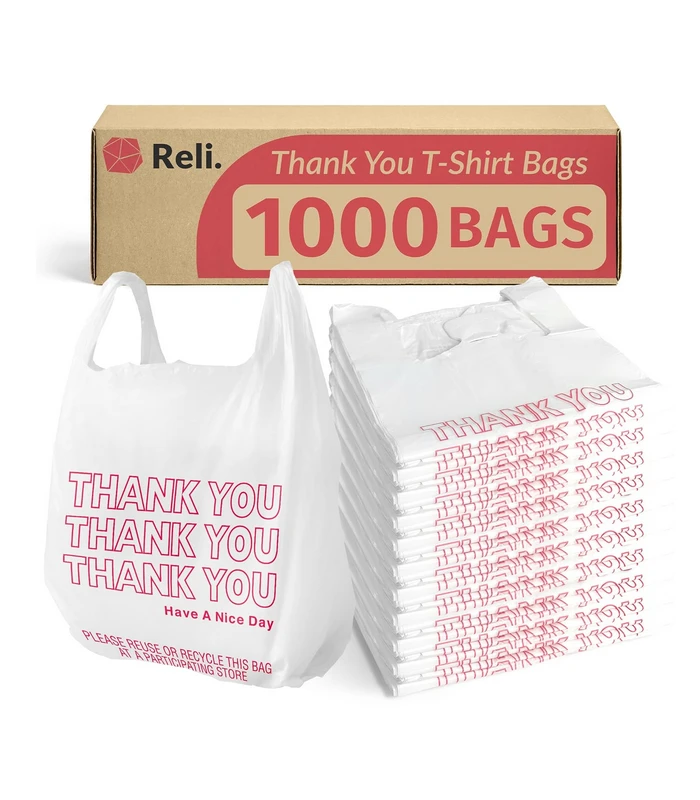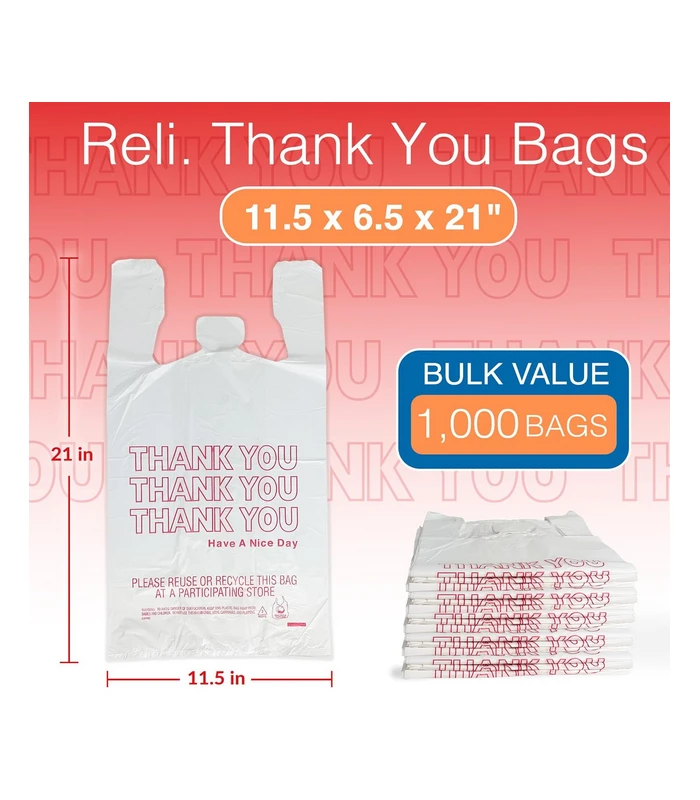Reli Plastic Bags
Reli Plastic Bags: Plastic bags have long been a symbol of convenience in modern society, but their environmental impact cannot be overstated. From clogging waterways to endangering marine life, the ubiquitous plastic bag has become a significant contributor to global pollution. However, amidst growing concerns about sustainability, innovations in materials science are paving the way for more eco-friendly alternatives. One such innovation is Reli-Plastic bags, a promising solution that aims to address the environmental challenges posed by traditional plastic bags. In this article, we'll delve into the concept of Reli-Plastic bags, exploring their composition, benefits, and potential role in sustainable packaging.
Understanding Reli-Plastic Bags:
Reli-plastic bags are a type of biodegradable and compostable plastic bags designed to minimize environmental harm. Unlike conventional plastic bags, which are made from non-renewable resources like petroleum, Reli-Plastic bags are typically derived from plant-based materials such as cornstarch or sugarcane. These renewable sources offer several advantages over traditional plastics, including reduced carbon footprint and decreased reliance on finite resources.
Key Features and Composition:
The composition of Reli-Plastic bags varies depending on the specific manufacturer and formulation. However, most Reli-Plastic bags are made from biodegradable polymers derived from renewable resources. These polymers undergo a process known as polymerization, where they are chemically bonded to form long chains or molecules. This process results in a material that exhibits similar properties to conventional plastic but with added biodegradability.
One of the key features of Reli-Plastic bags is their ability to break down naturally over time, thanks to the presence of microorganisms in the environment. Unlike traditional plastic bags, which can persist in the environment for hundreds of years, Reli-Plastic bags undergo decomposition, eventually turning into organic matter, water, and carbon dioxide. This process, known as biodegradation, significantly reduces the environmental impact of these bags and helps mitigate pollution.
Benefits of Reli-Plastic Bags:
Reli-plastic bags offer several benefits compared to traditional plastic bags, making them an attractive option for environmentally conscious consumers and businesses alike:
Reduced Environmental Impact: By utilizing renewable resources and promoting biodegradation, Reli-Plastic bags help reduce the accumulation of plastic waste in landfills and oceans. This, in turn, mitigates the harmful effects of plastic pollution on ecosystems and wildlife.
Resource Conservation: The production of Reli-Plastic bags typically requires fewer fossil fuels compared to traditional plastic bags, thereby conserving finite resources and reducing greenhouse gas emissions. Additionally, the use of renewable feedstocks contributes to sustainable agriculture and reduces dependence on non-renewable resources.
Consumer Appeal: With increasing awareness of environmental issues, consumers are actively seeking out eco-friendly alternatives to conventional plastic products. Reli-plastic bags offer a sustainable option that meets the needs of environmentally conscious consumers without sacrificing convenience or functionality.
Regulatory Compliance: As governments around the world implement stricter regulations on single-use plastics, businesses are under pressure to adopt more sustainable packaging solutions. Reli-plastic bags provide a compliant alternative that aligns with evolving environmental policies and promotes corporate social responsibility.
Versatility: Reli-plastic bags can be customized to meet various packaging requirements, ranging from grocery bags to food packaging and beyond. Their versatility and adaptability make them suitable for a wide range of applications across different industries.
Challenges and Considerations:
While Reli-Plastic bags offer numerous benefits, they are not without challenges and considerations:
Cost: Reli-plastic bags may be more expensive to produce than traditional plastic bags due to the use of renewable feedstocks and specialized manufacturing processes. However, economies of scale and advancements in technology are gradually reducing the cost gap between Reli-Plastic bags and their conventional counterparts.
Performance: Some critics argue that Reli-Plastic bags may not offer the same level of durability and strength as traditional plastic bags, particularly in demanding applications such as heavy-duty packaging. Manufacturers are continually improving the performance characteristics of Reli-Plastic bags to address these concerns and enhance their suitability for various uses.
Infrastructure and Recycling: Biodegradable plastics, including Reli-Plastic bags, require specific conditions to biodegrade effectively, such as exposure to sunlight, oxygen, and microbial activity. Without adequate composting infrastructure and recycling facilities, these bags may still end up in landfills or contribute to littering if not disposed of properly. Addressing these infrastructure challenges is essential to realizing the full potential of Reli-Plastic bags as a sustainable packaging solution.
Future Outlook:
Despite the challenges, Reli-Plastic bags represent a significant step forward in the quest for sustainable packaging solutions. As consumer preferences shift towards eco-friendly alternatives and regulatory pressure mounts on plastic producers, the demand for Reli-Plastic bags is likely to increase. Advancements in materials science, coupled with investments in composting infrastructure and recycling technologies, will further drive innovation in the field of biodegradable plastics.
Conclusion: Reli-plastic bags offer a compelling solution to the environmental challenges associated with traditional plastic bags. By harnessing renewable resources and promoting biodegradation, these bags provide a more sustainable alternative for packaging applications. While certain challenges remain, ongoing research and development efforts are poised to overcome these obstacles and unlock the full potential of Reli-Plastic bags in shaping a more environmentally friendly future. As businesses and consumers embrace sustainable practices, Reli-Plastic bags have the opportunity to play a pivotal role in reducing plastic pollution and advancing the transition towards a circular economy.
Also Read -

































Reviews
There are no reviews yet.